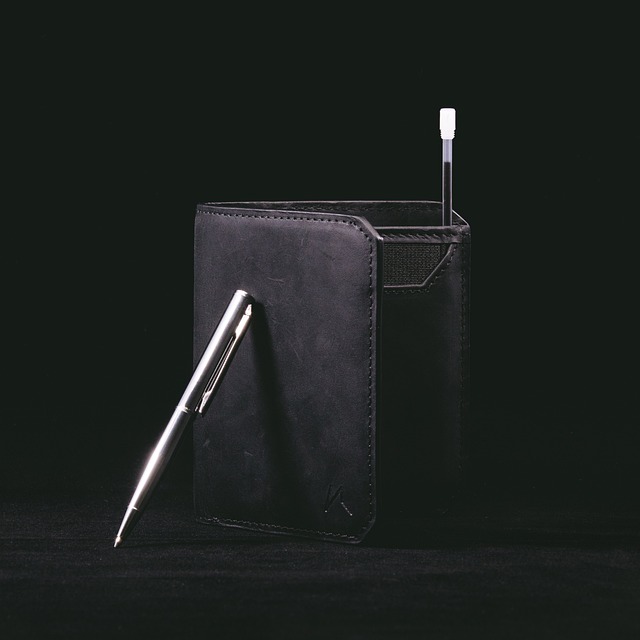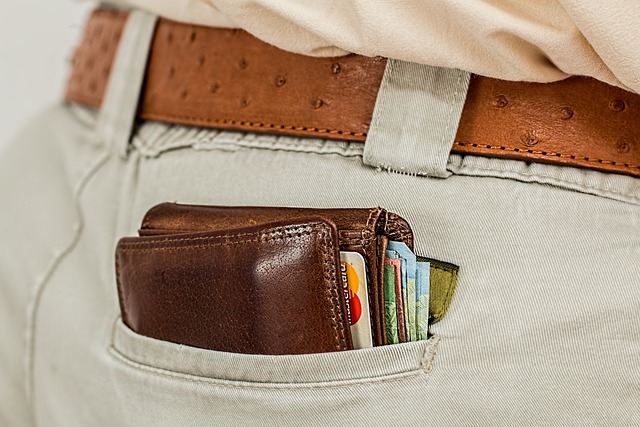Understanding Crypto Wallets: A Comprehensive Guide
Author: Jameson Richman Expert
Published On: 2025-05-22
Prepared by Jameson Richman and our team of experts with over a decade of experience in cryptocurrency and digital asset analysis. Learn more about us.
Crypto wallets are essential tools for anyone looking to engage in cryptocurrency transactions, offering a secure way to store, send, and receive digital assets. In this article, we'll explore the different types of crypto wallets, how they work, their advantages and disadvantages, and why choosing the right one is crucial for your crypto journey. By the end of this guide, you will have a clearer understanding of crypto wallets and how to leverage them effectively in your cryptocurrency activities.
A crypto wallet is a digital application that allows users to manage their cryptocurrencies. Unlike a physical wallet, which holds cash and cards, a crypto wallet does not store the cryptocurrency itself. Instead, it stores the private and public keys necessary to interact with the blockchain. Understanding how these wallets function and the various types available can significantly impact your investment strategy and security posture. This comprehensive guide will also delve into the mechanics of blockchain technology, helping you grasp the full picture of how your assets are managed.

Types of Crypto Wallets
There are several types of crypto wallets, each offering different levels of security and convenience. The main categories include:
- Hot Wallets: These wallets are connected to the internet and provide quick access to your cryptocurrencies. While they are user-friendly and suitable for frequent transactions, they are more susceptible to hacks. Examples include mobile wallets and web wallets, which often offer features such as QR code scanning for easier transactions. Hot wallets are typically favored by active traders and those needing immediate access to their funds. However, users should be cautious and implement security measures to safeguard their assets.
- Cold Wallets: Cold wallets are offline storage options, making them more secure against online threats. Hardware wallets, such as Ledger and Trezor, fall under this category and are often considered the gold standard for security. They store keys on a physical device, requiring you to connect it to a computer or mobile device for transactions. Cold wallets are ideal for long-term storage of cryptocurrencies due to their enhanced security features. Advanced users may also consider utilizing multi-signature wallets, which require multiple keys to authorize a transaction, adding an extra layer of security.
- Paper Wallets: A paper wallet is a physical document that contains your public and private keys printed on it. This is one of the most secure forms of storage since it is entirely offline, but it can be easily lost or damaged. Creating a paper wallet involves generating your keys on a secure, offline device to minimize exposure to online threats. It's crucial to keep the paper wallet in a safe place, as losing it means losing access to your funds. Some users opt to laminate their paper wallets or store them in a safe deposit box for added protection.
How Crypto Wallets Work
Crypto wallets work by using cryptographic keys to manage the ownership of digital assets on the blockchain. Each wallet has a public key, similar to an account number, which can be shared with others to receive funds. The private key, on the other hand, is a secret number that allows you to access and control your cryptocurrencies. It is crucial to keep your private key secure, as anyone with access to it can control your funds. Additionally, when you make a transaction, your wallet generates a cryptographic signature using your private key, verifying that you are the owner of the assets being transferred. The transaction is then broadcasted to the blockchain network for confirmation.
To better understand this, consider the analogy of a bank account. The public key acts like your account number that you can share with others for deposits, while the private key is akin to your PIN or password, which only you should know. This dual key structure is a foundational concept in cryptocurrency security, ensuring that only authorized users can manage the associated assets.
Advantages of Using Crypto Wallets
Using a crypto wallet comes with several advantages:
- Control: With a crypto wallet, you have full control over your assets. Unlike keeping funds on an exchange, where you depend on the platform's security, a wallet allows you to manage your cryptocurrencies directly, ensuring that you are the only one with access to your private keys. This autonomy is critical in the decentralized world of cryptocurrencies.
- Security: Cold wallets provide a high level of security against hacks and cyber threats. Even hot wallets can have security measures in place, like two-factor authentication and biometric verification, to enhance security. Choosing the right wallet with robust security features can significantly reduce the risk of theft. Users should remain vigilant, regularly updating their security practices to counter evolving threats.
- Privacy: Many wallets do not require personal information, allowing for anonymous transactions. This is especially beneficial for users concerned about privacy and surveillance, as it provides a level of anonymity that traditional banking systems cannot offer. However, users should be aware of the regulations in their jurisdiction regarding the use of cryptocurrencies.
- Accessibility: Hot wallets facilitate quick transactions and allow users to easily access their funds anytime and anywhere, which is particularly useful for active traders. This convenience often comes with features that help manage and analyze transactions effectively. Users can leverage mobile apps for real-time market data, enabling informed trading decisions.

Disadvantages of Using Crypto Wallets
While crypto wallets offer numerous benefits, they also have some drawbacks:
- Complexity: For beginners, the setup process can be daunting, especially when it comes to securing private keys and understanding blockchain technology. Users must take the time to educate themselves on best practices to avoid pitfalls. Many wallet providers offer tutorials and resources to help new users navigate the complexities of wallet management.
- Loss of Funds: If you lose your private key, you will lose access to your cryptocurrencies. Unlike traditional banking systems, there is no way to recover lost keys, making it essential to back them up securely. Many users underestimate the importance of key management, leading to significant losses. Consider using hardware wallets that offer backup and recovery options to mitigate this risk.
- Fees: Some wallets may charge transaction fees, which can add up over time, especially for frequent traders. Additionally, fees may vary based on network congestion, which can impact the speed and cost of transactions. Users should be aware of these fees and factor them into their trading strategies.
- Technical Vulnerabilities: Hot wallets can be subject to phishing attacks, malware, and other vulnerabilities, which makes users susceptible to losing their assets if they are not careful. Regularly monitoring your wallet and employing security best practices can mitigate these risks. Staying informed about the latest scams and security measures is crucial for protecting your assets.
Choosing the Right Crypto Wallet
When selecting a crypto wallet, consider the following factors:
- Security Features: Look for wallets that offer multi-signature features, two-factor authentication, and recovery options in case of lost access. Wallets with strong security protocols can protect you from unauthorized access. Research the security history of the wallet provider to ensure they have a good track record.
- Supported Currencies: Ensure the wallet supports the cryptocurrencies you intend to trade. Some wallets are limited to certain tokens while others are more versatile. If you plan to diversify your portfolio, choose a wallet that accommodates a variety of assets. Consider wallets that support ERC-20 tokens if you're investing in Ethereum-based projects.
- User Experience: Choose a wallet with an intuitive interface and responsive customer support to make the experience seamless, especially if you are a novice. User reviews can provide insights into the usability of a wallet, as well as the quality of customer support.
- Reputation: Research user reviews and expert opinions to ensure the wallet has a solid reputation for security and reliability. A wallet with a history of breaches or poor customer service can jeopardize your investments. Engage with online communities to gather feedback on different wallet options.
Popular Crypto Wallets
Several reputable wallets are available for users. Here are a few examples:
- Binance Wallet: This wallet is associated with one of the largest crypto exchanges in the world. Binance Wallet allows users to store a wide range of cryptocurrencies and provides easy access to trading features. You can sign up for Binance using this link: Binance Registration.
- MEXC Wallet: This wallet is part of the MEXC exchange, which offers a variety of trading options. Users can register using the link: MEXC Registration.
- Bitget Wallet: With a user-friendly interface, Bitget Wallet provides users access to various trading features. Register here: Bitget Registration.
- Bybit Wallet: Bybit is another popular exchange that offers a wallet for its users. You can join Bybit through this link: Bybit Registration.

Best Practices for Wallet Security
To keep your cryptocurrencies safe, follow these best practices:
- Use Strong Passwords: Ensure your wallet is protected with a strong, unique password. Consider using a password manager to help create and store complex passwords. A strong password is your first line of defense against unauthorized access.
- Enable Two-Factor Authentication: Whenever possible, enable 2FA for an extra layer of security. This adds a second verification step to your login process, making it more challenging for hackers to gain access. Some wallets offer options for app-based 2FA, which is more secure than SMS-based methods.
- Keep Software Updated: Regularly update your wallet software and firmware to protect against vulnerabilities. Many wallet providers release updates to address security flaws. Staying current with updates helps safeguard against known exploits.
- Backup Your Wallet: Create regular backups of your wallet's keys and store them securely, both digitally (in encrypted form) and physically (in a safe place). Having a backup can save you from losing access in case of device failure. Consider using multiple backup methods, such as USB drives or secure cloud storage.
- Be Wary of Phishing Attempts: Always verify URLs and avoid clicking on links from unknown sources to prevent falling victim to phishing scams. Educating yourself about common phishing techniques can help you stay vigilant. Consider using a dedicated browser or device for cryptocurrency transactions to minimize risk.
The Future of Crypto Wallets
As cryptocurrency continues to gain traction, the future of crypto wallets looks promising. We can expect innovations that enhance security, user experience, and integration with decentralized finance (DeFi) platforms. The rise of non-fungible tokens (NFTs) indicates that wallets will evolve to accommodate a wider variety of digital assets, including collectibles and digital art. Furthermore, advancements in blockchain technology may lead to the development of more sophisticated wallet solutions that incorporate smart contract functionalities and enhanced interoperability between different blockchain networks. Additionally, we may see increased regulatory scrutiny, prompting wallet providers to implement more robust compliance measures.
In conclusion, understanding crypto wallets is essential for anyone interested in cryptocurrency. By selecting the right wallet and implementing best security practices, users can safeguard their investments and navigate the crypto space with confidence. For further insights, check out this article on the future of crypto trading signals, which can help enhance your trading strategies. Additionally, explore this secret to making your crypto wallet rich, and discover how VIP Telegram signals can unlock crypto success. Finally, keep an eye on the ultimate trading signals for 2025 to stay ahead in the market.
Additional Resources
To further enhance your understanding of crypto wallets and the cryptocurrency ecosystem, consider exploring the following resources:
- Investopedia: Cryptocurrency Wallet - A detailed explanation of crypto wallets, including different types and how they function.
- CoinDesk: What is a Crypto Wallet? - An informative guide on the various wallets available and their uses.
- Blockchain.com Wallet - A popular web wallet option that offers both hot and cold storage solutions.
- Ledger - A leading provider of hardware wallets for secure offline storage of cryptocurrencies.

Final Thoughts
As the cryptocurrency landscape continues to evolve, staying informed about the latest developments in wallet technology and security practices is vital for all users. By understanding the fundamental principles of crypto wallets and actively engaging in secure practices, you can navigate the crypto space with confidence and potentially increase your returns on investment. Remember, the best wallet for you will depend on your individual needs, trading habits, and risk tolerance. Make informed decisions, and happy investing!